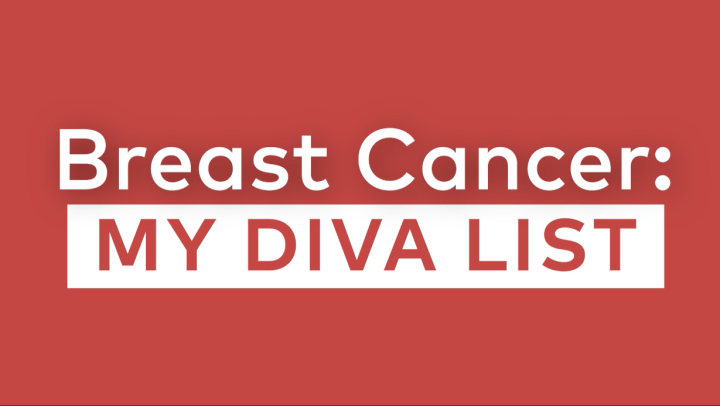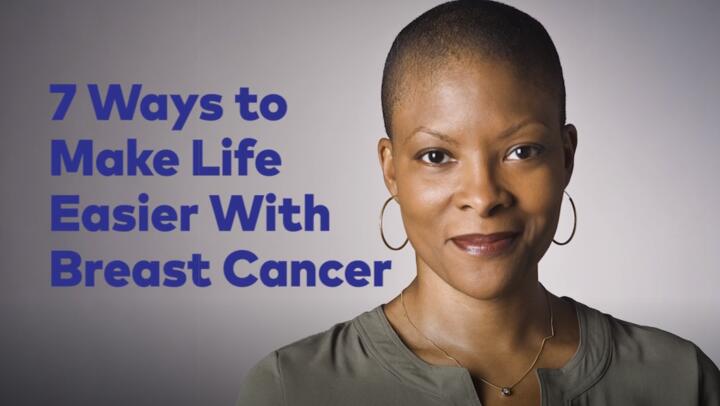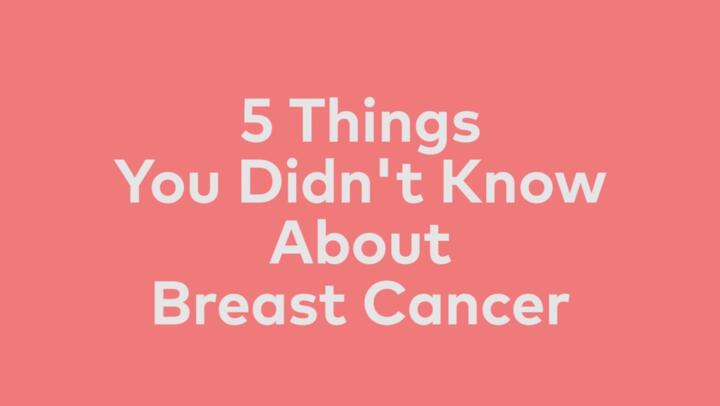Head and Neck Cancer: 7 Things to Know

Medically Reviewed By William C. Lloyd III, MD, FACS
Written By Ashley Festa on March 20, 2021
-
 What Are Head and Neck Cancers?Head and neck cancer includes many different types of cancers, such as throat, mouth, larynx, nose, sinus and lip cancer. Although other cancers, such as brain tumors, eye cancer, or thyroid cancer, also begin in the head, they are not head and neck cancer because they have different treatment plans. Head and neck cancers are usually squamous cell carcinomas, and cure is often possible in the early stages. The more you know about these cancers, the more prepared you’ll be to combat them.
What Are Head and Neck Cancers?Head and neck cancer includes many different types of cancers, such as throat, mouth, larynx, nose, sinus and lip cancer. Although other cancers, such as brain tumors, eye cancer, or thyroid cancer, also begin in the head, they are not head and neck cancer because they have different treatment plans. Head and neck cancers are usually squamous cell carcinomas, and cure is often possible in the early stages. The more you know about these cancers, the more prepared you’ll be to combat them. -
 1. Men are more likely to be diagnosed with head and neck cancers.Head and neck cancers comprise about 3% of all cancer diagnoses in the United States. Men are almost two times more likely than women to develop one of these types of cancer. And older people—those over age 50—are at a higher risk than young people.
1. Men are more likely to be diagnosed with head and neck cancers.Head and neck cancers comprise about 3% of all cancer diagnoses in the United States. Men are almost two times more likely than women to develop one of these types of cancer. And older people—those over age 50—are at a higher risk than young people. -
-
 2. Smoking and drinking increase your risk of head and neck cancer.If you drink excessively or use any kind of tobacco, you are at higher risk of developing head or neck cancer. And if you use both alcohol and tobacco, your risk jumps even higher. Alcohol and tobacco use cause more than 75% of all head and neck cancers, most often in the throat, larynx (also called the voice box), or oral cavity. Another common risk factor is some types of HPV (human papillomavirus) infection, which is most likely to cause cancer of the tonsils or tongue.
2. Smoking and drinking increase your risk of head and neck cancer.If you drink excessively or use any kind of tobacco, you are at higher risk of developing head or neck cancer. And if you use both alcohol and tobacco, your risk jumps even higher. Alcohol and tobacco use cause more than 75% of all head and neck cancers, most often in the throat, larynx (also called the voice box), or oral cavity. Another common risk factor is some types of HPV (human papillomavirus) infection, which is most likely to cause cancer of the tonsils or tongue. -
 3. Check with your doctor if you notice symptoms—even if they seem minor.Signs and symptoms of head and neck cancer can also be due to other conditions. Check with a doctor if you notice anything unusual. Signs to look for include a red or white patch inside the mouth, swelling in the jaw, unusual bleeding, voice changes, or frequent sinus infections that don’t clear up with antibiotics. Other symptoms include pain when swallowing, pain in the ears or teeth, or any pain in the face, neck or throat that won’t go away.
3. Check with your doctor if you notice symptoms—even if they seem minor.Signs and symptoms of head and neck cancer can also be due to other conditions. Check with a doctor if you notice anything unusual. Signs to look for include a red or white patch inside the mouth, swelling in the jaw, unusual bleeding, voice changes, or frequent sinus infections that don’t clear up with antibiotics. Other symptoms include pain when swallowing, pain in the ears or teeth, or any pain in the face, neck or throat that won’t go away. -
 4. There are many treatment options for head and neck cancer.Head and neck cancers have a variety of treatment options. Treatment plans depend on the particular type of cancer, whether the cancer has spread, and the person’s age and overall health. A surgeon may be able to remove some kinds of tumors. Radiation or chemotherapy may be other options. Doctors may also use radiation and chemotherapy in combination with surgery or other treatments.
4. There are many treatment options for head and neck cancer.Head and neck cancers have a variety of treatment options. Treatment plans depend on the particular type of cancer, whether the cancer has spread, and the person’s age and overall health. A surgeon may be able to remove some kinds of tumors. Radiation or chemotherapy may be other options. Doctors may also use radiation and chemotherapy in combination with surgery or other treatments. -
 5. Some treatments can cause permanent side effects.A person may experience temporary or permanent side effects from head or neck cancer treatment. For example, surgery may cause swelling, which is often temporary, but an operation can also change the way a person looks. Surgery might also change the way the person chews, swallows or speaks. If lymph nodes in the neck must be removed, the person’s shoulders and neck might become stiff. Radiation can cause sores, problems swallowing, nausea, or ear pain. The person could also experience changes or loss of taste. Ask your doctor about what side effects you should expect with your treatment plan.
5. Some treatments can cause permanent side effects.A person may experience temporary or permanent side effects from head or neck cancer treatment. For example, surgery may cause swelling, which is often temporary, but an operation can also change the way a person looks. Surgery might also change the way the person chews, swallows or speaks. If lymph nodes in the neck must be removed, the person’s shoulders and neck might become stiff. Radiation can cause sores, problems swallowing, nausea, or ear pain. The person could also experience changes or loss of taste. Ask your doctor about what side effects you should expect with your treatment plan. -
-
 6. Life may be different after head and neck cancer treatment.Depending on the course of action, a person may have different needs following the treatment of head or neck cancer. A person with mouth cancer may need reconstructive surgery or a prosthesis to be able to function normally again. Speech therapy might be necessary after treating larynx cancer. A person could also have trouble swallowing or eating after treatment. In that case, he or she might need a feeding tube until learning to chew and swallow again.
6. Life may be different after head and neck cancer treatment.Depending on the course of action, a person may have different needs following the treatment of head or neck cancer. A person with mouth cancer may need reconstructive surgery or a prosthesis to be able to function normally again. Speech therapy might be necessary after treating larynx cancer. A person could also have trouble swallowing or eating after treatment. In that case, he or she might need a feeding tube until learning to chew and swallow again. -
 7. Quitting tobacco is key to preventing head and neck cancer.One of the most effective ways to reduce your risk of developing head or neck cancer is to stop using tobacco. This is true whether it’s smoking or chewing tobacco. People who have already had head or neck cancer are at higher risk for developing a new type of cancer, especially people who drink excessively or use tobacco. So kick the habit to help reduce your cancer risk.
7. Quitting tobacco is key to preventing head and neck cancer.One of the most effective ways to reduce your risk of developing head or neck cancer is to stop using tobacco. This is true whether it’s smoking or chewing tobacco. People who have already had head or neck cancer are at higher risk for developing a new type of cancer, especially people who drink excessively or use tobacco. So kick the habit to help reduce your cancer risk.
Head & Neck Cancers | Things to Know about Head & Neck Cancer


























